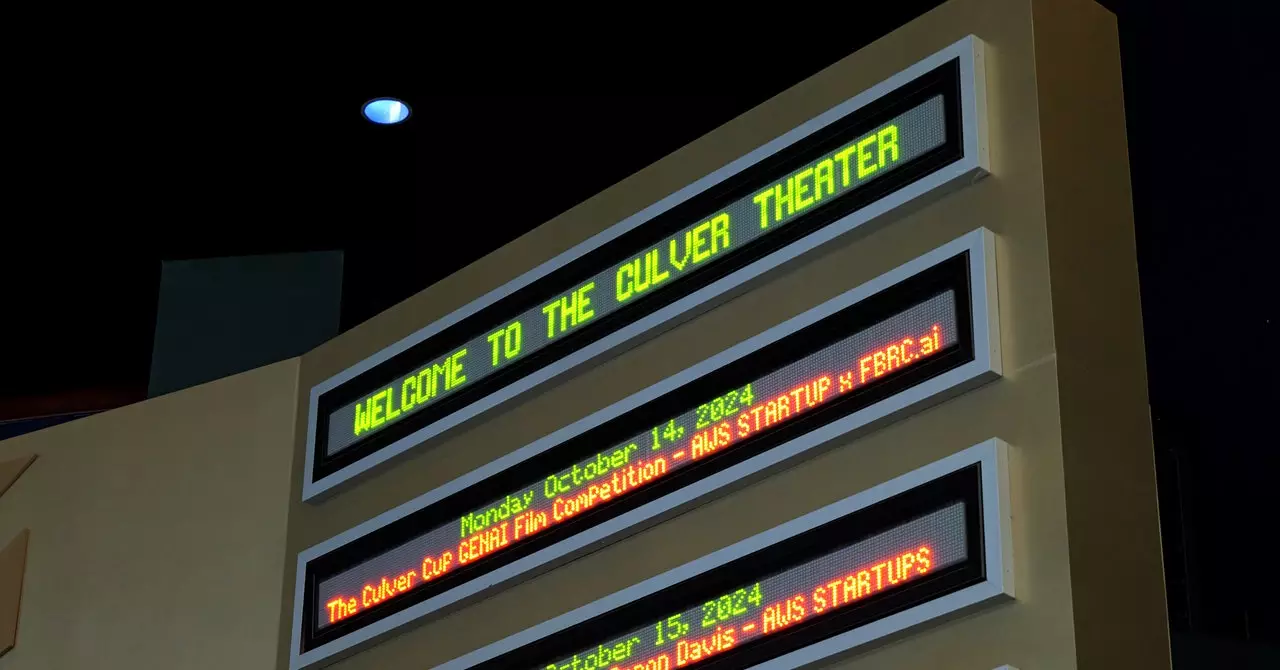In a rapidly evolving technological landscape, the art of storytelling remains a timeless craft. As creators explore new mediums and tools, one thing is clear: the core fundamentals of storytelling endure. Meta Puppet, a rising figure in the realm of AI-assisted filmmaking, underscores this sentiment by emphasizing the importance of emotional depth in narratives. His short film “Mnemonade” exemplifies this principle as he navigates themes of memory, loss, and human experience through the lens of artificial intelligence. Puppet’s efforts highlight a crucial point: while technology transforms the tools at hand, the essence of storytelling—that is, the connection to our shared emotions—remains unchanged.
Moreover, as we delve into the nuances of AI’s impact on creative endeavors, it becomes apparent that success in this new frontier will hinge on emotional authenticity. Puppet argues that for AI-generated films to gain mainstream acceptance, they must resonate emotionally with audiences. This challenge poses a unique hurdle for filmmakers aiming to balance the technical capabilities of AI with the human experience they aspire to convey.
The integration of AI into Hollywood creates a complex tapestry of anxiety and opportunity. Notably, some industry professionals, like Maddie Hong, express concern over potential legal implications and financial ramifications tied to AI’s use in creative processes. The specter of copyright infringement looms large, prompting studios to adopt a cautious approach in their dealings with AI-generated content. Furthermore, Hollywood’s stringent standards for image consistency add another layer of complexity; as distribution channels diversify, the stakes for visual accuracy soar.
Despite these reservations, there remains a palpable sense of optimism within the industry. Amit Jain, co-founder of Luma, advocates for the potential of generative AI to enhance flexibility in project development, encouraging greater diversity in storytelling. He observes, rightly so, that a significant portion of Hollywood’s high-budget productions rely heavily on established franchises, thus stifling innovation. By leveraging AI, filmmakers may indeed explore more original narratives without the burden of exorbitant costs. Jain’s perspective brings to light the paradox of creativity in an era defined by commercial considerations—while risk aversion dominates, the discontent with reboot culture offers fertile ground for AI-inspired original creations.
The dialogue surrounding AI in the entertainment industry often gravitates toward job security. As the technology burgeons, fears of job displacement linger in conversations amongst industry leaders. A survey of 300 entertainment executives revealed that 75% perceived a sense of job reduction or consolidation linked to generative AI innovations. This data prompts an essential discussion: will the jobs created through AI compensate for those eliminated, or will the industry experience a net loss?
Supporters of AI, like Jain, argue that enhanced productivity could lead to new opportunities, fostering a more fulfilling career environment for creators. They envision a landscape where filmmaking can be more accessible, enabling small teams to produce compelling content without the constraints of massive budgets. However, contrasting research indicates that anxiety about job losses persists among workers, particularly those resistant to integrating AI into their workflows.
Reimagining Filmmaking in a Digital Era
While the idea of leveraging AI as a collaborative tool is intriguing, artists must remain vigilant about the ethical and aesthetic implications surrounding its use. The journey from concept to execution can involve complexities, particularly in ensuring that the human touch remains integral to storytelling. AI can indeed open new avenues for creativity, but relying solely on technology may lead to soulless, formulaic products devoid of genuine emotion.
The vision of an enthusiastic filmmaker rallying a group of friends to create a whimsical film featuring a superpowered Boston Terrier is charming, yet it simultaneously questions the sustainability of such a model. The reality is that while accessibility may increase, the heart and soul of filmmaking—rooted in craftsmanship, emotion, and narrative depth—cannot be upstaged by algorithms alone.
Ultimately, as we traverse the landscape of AI in the creative sphere, we must celebrate the fusion of technology and human artistry. The ability to tell compelling stories will always depend on the skills, experiences, and insights of the individuals behind the lens, echoing Meta Puppet’s analogy that while everyone knows about the piano, only a few can compose symphonies. The challenge lies ahead: to embrace innovation while honoring the timeless essence of the stories we tell.

